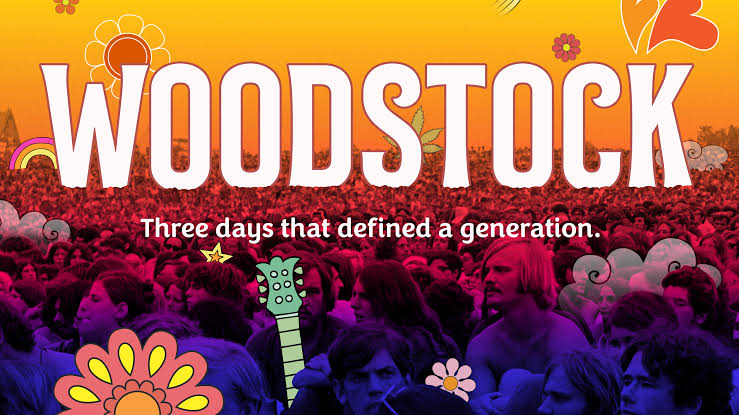Netflix is set to release a highly anticipated documentary about the legendary Woodstock music festival, diving deep into the rich history, cultural impact, and the chaotic behind-the-scenes story of one of the most iconic events in music history. As the world celebrates the festival’s legacy, the documentary promises to offer a fresh perspective, blending archival footage with new interviews and insights to give audiences an in-depth look at how Woodstock became a cultural touchstone.
### The Significance of Woodstock
Woodstock, originally held in 1969, is considered one of the most significant moments in music history. The festival, which took place on a farm in Bethel, New York, was initially intended to be a peaceful gathering of like-minded individuals celebrating the power of music and counterculture. The event was a milestone for the hippie movement, embodying ideals of peace, love, and social change. At the time, the United States was embroiled in the Vietnam War, and the festival became a symbol of the countercultural rebellion against mainstream politics, war, and societal norms.
The music lineup was nothing short of legendary, featuring artists who would go on to become cultural icons, such as Jimi Hendrix, Janis Joplin, The Who, and Jefferson Airplane. The festival attracted over 400,000 attendees, many of whom braved challenging conditions, including muddy fields and limited access to food and water, in order to be part of the historic moment.
However, the event was not without its problems. The large crowds, lack of infrastructure, and logistical nightmares created chaos. Despite the disorganization, Woodstock’s essence was intact: it became a symbol of freedom and the power of music to unite people.
### Netflix’s Documentary: A Deeper Look
Netflix’s documentary will be a comprehensive exploration of Woodstock, going beyond the surface to explore the cultural, political, and social forces that shaped the event. Rather than focusing solely on the music or the iconic performances, the film will delve into the broader context of the 1960s, a time marked by political unrest, civil rights struggles, and the growing influence of youth culture.
One of the central themes of the documentary will be the impact of Woodstock on the music industry and the counterculture. The festival became a defining moment for many artists, cementing their place in history. For example, Jimi Hendrix’s famous rendition of “The Star-Spangled Banner” became an iconic moment in rock music, embodying the anti-establishment sentiments of the time. The documentary will examine how Woodstock was not just a festival but a turning point for the music industry, influencing the way large-scale festivals are organized and how music festivals, in general, became major cultural events.
Furthermore, the documentary will explore the tensions and challenges that arose in the planning and execution of Woodstock. It will highlight the personalities involved, including the festival’s organizers, the local community, and the performers, offering a behind-the-scenes look at how a seemingly utopian gathering quickly turned into a logistical nightmare. The film will likely touch on issues such as the shortage of food and water, the overcrowding, and the lack of sanitation, which led to chaos but also a sense of camaraderie among festival-goers.
### The Legacy of Woodstock
The documentary will also consider the lasting impact of Woodstock, examining how its cultural influence extends far beyond the 1969 event. The idea of Woodstock as a symbol of peace, freedom, and countercultural values has remained intact, inspiring generations of music lovers and activists. The festival’s ethos has been emulated in countless ways, from the creation of similar music festivals like Coachella to the continued popularity of the “peace and love” ideals.
While Woodstock’s legacy is widely revered, it’s also important to note that the festival’s commercialization and subsequent iterations in later decades have sparked debate. The documentary will likely touch on the 1999 Woodstock anniversary, which was marred by violence, riots, and reports of sexual assault. This darker chapter in Woodstock’s history highlights the ways in which the festival’s original spirit of unity and peace was at times overshadowed by the pressures of commercialization and corporate influence.
### The Role of Modern Technology in Telling Woodstock’s Story
One of the most exciting aspects of Netflix’s documentary is how modern technology will enhance the storytelling. The streaming giant has become known for producing high-quality documentaries that incorporate never-before-seen footage, advanced editing techniques, and new interviews with key figures involved in the original event. This documentary will likely benefit from these technological advances, providing viewers with an immersive experience that brings the Woodstock story to life in new and exciting ways.
The documentary is expected to feature archival footage of the festival, rare interviews, and commentary from contemporary music experts, cultural historians, and even some of the artists who were there. This rich tapestry of voices will allow viewers to experience Woodstock through multiple perspectives, making the documentary not only a celebration of the event itself but also a deeper reflection on its meaning in the larger cultural landscape.
### Conclusion
Netflix’s upcoming documentary on Woodstock is poised to become a must-watch for anyone interested in the history of music, the counterculture of the 1960s, and the enduring power of festivals to unite people. By offering a comprehensive look at the event’s history, cultural significance, and the challenges it faced, the film promises to provide a nuanced and detailed portrait of Woodstock as more than just a music festival – but as a moment in time that shaped the very fabric of American society. Whether you’re a die-hard fan of Woodstock or someone with only a passing knowledge of its legacy, this documentary will undoubtedly offer fresh insights into why the festival remains an enduring symbol of peace, love, and music.

